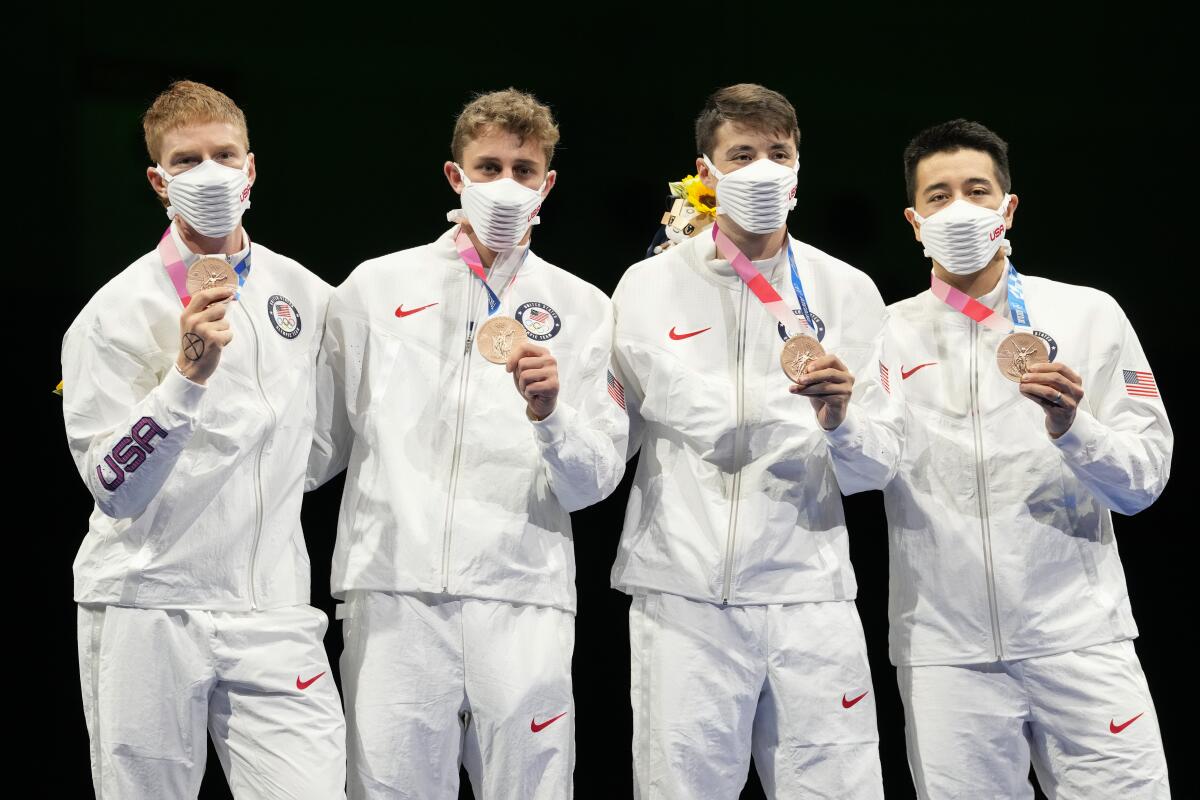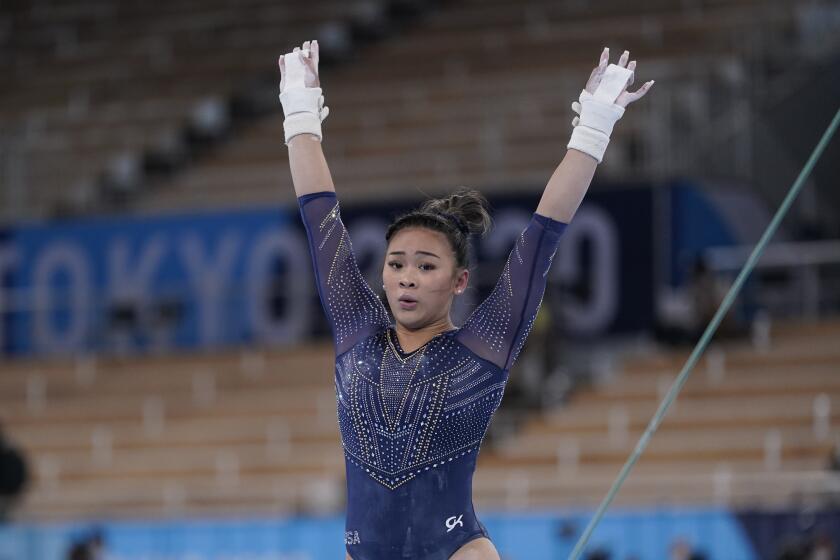U.S. men earn fencing bronze in foil, helping ease the sting of subpar performances

- Share via
TOKYO — This was not the Olympics the U.S. men’s foil team had hoped for.
The Americans arrived in Japan with four of the top 10 fencers in the world but were thrown an immediate curve when star Alexander Massialas and an assistant coach had to quarantine because they sat near an infected beach volleyball player, Taylor Crabb, on the flight over.
Then came the individual competition and a string of losses.
All of which made Sunday night’s team event feel a little better as they rebounded to defeat Japan and win bronze.
“Yeah, it was really hard,” coach Greg Massialas said. “The guys had to really battle back.”
Japanese officials originally planned to quarantine the entire squad after Crabb tested positive. As coach, Massialas explained to them that most of his group, though only a few rows away, had been in a different section of the plane, separated by a galley.
A bronze medal in the uneven bars final on Sunday completed Suni Lee’s set of Tokyo Olympic hardware.
But his son, Alex, unexpectedly bumped to business class, had no such excuse.
The rules allowed the younger Massialas to compete in the individual event last Monday but with no practice. It was only a few days ago that he began working out with teammates — Gerek Meinhardt, Race Imboden and Nick Itkin — and only a few hours before Sunday’s first bout that officials released him from quarantine. He showed up at Makuhari Messe Hall B with his luggage.
“We’re all so close, we would have had a lot of fun watching sports on TV, playing cards, walking around the village,” Meinhardt said. “All those things we knew he was missing out on and we missed him being there.”
The foil team is an unusually close bunch. In addition to father and son, the Massialas had daughter Sabrina on the women’s foil team. Itkin’s father was the quarantined assistant. Meinhardt’s wife, Lee Kiefer, won gold in women’s foil, and Imboden’s girlfriend, Ysaora Thibus, helped France to silver in the women’s team.
Finally reunited on Sunday, the Americans — who had looked tight and disjointed in their individual bouts — started much the same way against Germany in the team quarterfinals. Meinhardt kept the score close with a strong early performance, and Imboden, the alternate, replaced Itkin to help power a 45-36 victory.
Things did not go as well in a 45-41 semifinal loss to the Russian Olympic Committee squad. So what did the U.S. fencers do? They retreated to the practice room, listened to music and played cards.
“We pulled it back together,” Imboden said. “I think the key is always just, as a top athlete, to bounce back. We bounced back.”
The bronze-medal match was settled relatively early, the Americans opening a sizable lead and never looking back. With Kiefer cheering from the stands, Massialas anchored the final round of a 45-31 victory.
Bronze might have seemed like a disappointment weeks earlier, but the perspective had shifted.
“Obviously, we wanted gold, but to come away with a medal after two weeks in quarantine?” Massialas said. “Oh man, it feels so, so good.”
More to Read
Go beyond the scoreboard
Get the latest on L.A.'s teams in the daily Sports Report newsletter.
You may occasionally receive promotional content from the Los Angeles Times.









